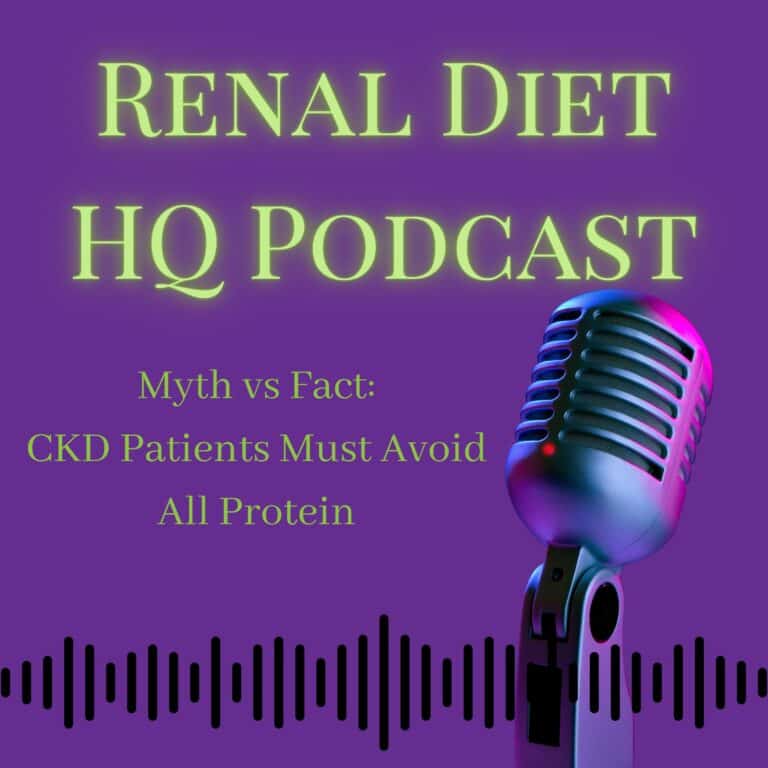What nutrients should I monitor in my diet?- Podcast
Podcast: Play in new window | Download

Chronic Kidney Disease (CKD) poses unique challenges for individuals striving to maintain optimal health. One crucial aspect of managing CKD involves closely monitoring and regulating nutrient intake. In this blog post, we will explore the key nutrients that CKD patients must pay special attention to in their diet, as highlighted in a recent conversation with Katie, a healthcare professional specializing in renal care.
For More Recipes and Ideas --->> Get Your Free Meals and Recipes That Are Perfect for Pre-Dialysis Diets, Pre-Dialysis with Diabetes, or Dialysis Diets.
Protein
Protein is a vital nutrient necessary for body growth and repair. However, as Katie explains, it can also be a double-edged sword for individuals with CKD. Consuming excessive amounts of protein can overburden the kidneys, leading to complications. Therefore, CKD patients must carefully monitor and regulate their protein intake to avoid placing undue stress on their kidneys.
Sodium
Another nutrient that demands close attention in a CKD diet is sodium. Katie emphasizes the importance of not overlooking sodium intake, as excess amounts of this substance can contribute to fluid retention and high blood pressure. Such conditions can further strain the kidneys, exacerbating CKD symptoms. Hence, reducing sodium intake is crucial for managing CKD effectively.
Potassium
Potassium plays a pivotal role in muscle and nerve function. However, weakened kidneys may struggle to remove excess potassium from the body, leading to dangerous levels in the blood. This, as Katie underscores, can pose significant risks for individuals with CKD. Therefore, it's essential for CKD patients to monitor their potassium intake carefully and make dietary adjustments as necessary to maintain safe levels.
Phosphorus
Elevated phosphorus levels can adversely impact bone health in CKD patients, as Katie points out. This complication can lead to further complications, worsening the condition of individuals with CKD. Managing phosphorus intake through dietary modifications is crucial for mitigating these risks and supporting overall bone health in CKD patients.
Monitoring and Management
To effectively manage nutrient levels in the CKD diet, Katie stresses the importance of regular blood tests, keeping track of dietary choices, and seeking guidance from a dietitian. By staying proactive and collaborating with healthcare professionals, CKD patients can optimize their nutrient intake, support kidney function, and enhance their overall well-being.
Closely monitoring and regulating nutrient intake is essential for individuals with CKD to manage their condition effectively. By focusing on key nutrients such as protein, sodium, potassium, and phosphorus, CKD patients can take proactive steps to support their kidney health and improve their quality of life. Remember, consulting with healthcare professionals and staying informed are crucial aspects of navigating the complexities of a CKD diet.







